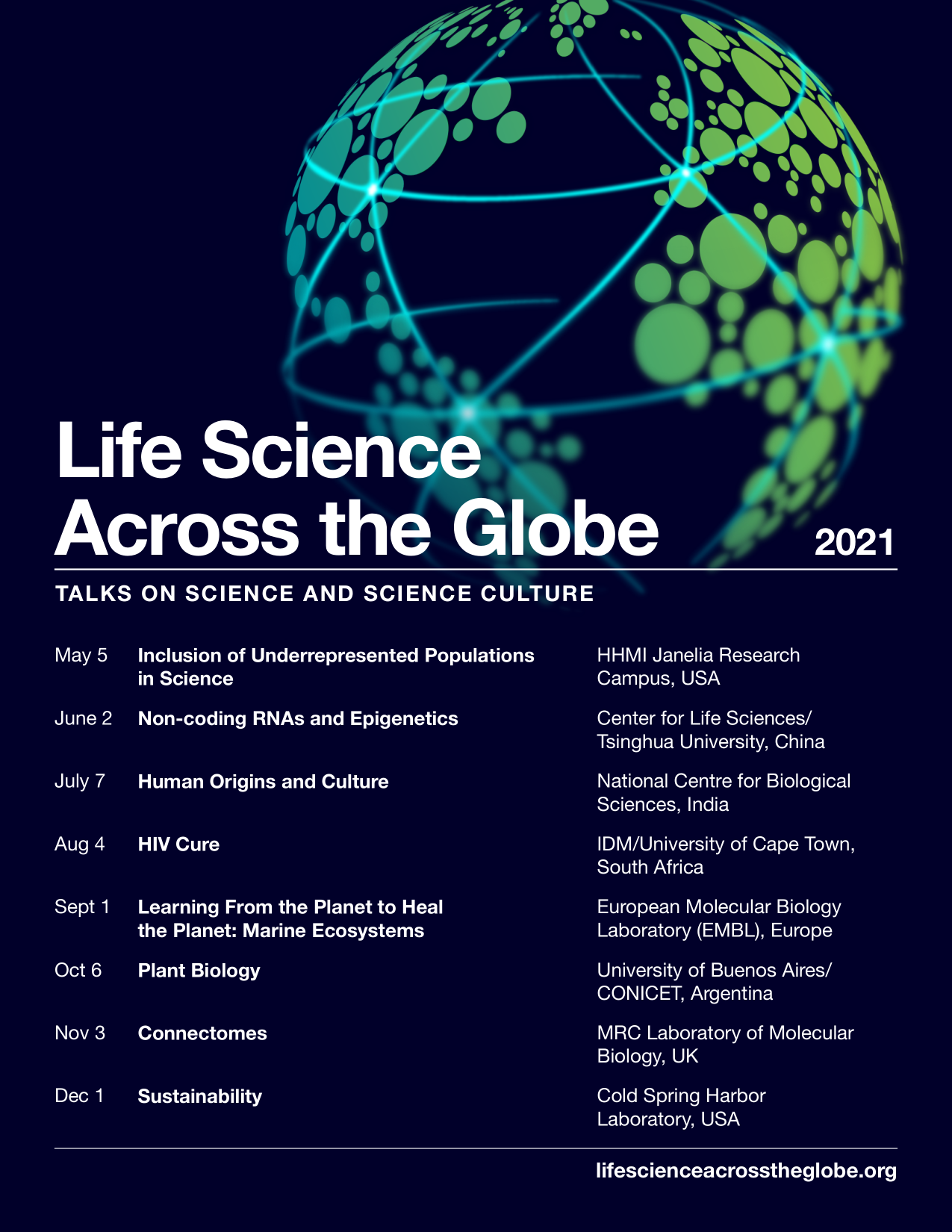If the last year has taught us anything, it is that global communication and cooperation in the life sciences are more intrinsic to the ways we connect and learn than we thought. In this spirit, eight life science institutes on five continents teamed up to develop Life Science Across the Globe, a seminar series dedicated to science and science culture around the world.
In May 2021, LSAG relaunched as a series of monthly seminars centred on high-impact globally relevant themes, with multiple speakers from different continents. Each event explores the theme through the work and ideas of scientists and scholars well-versed in it. The sister institutes span multiple countries: Cold Spring Harbor Laboratory, Cold Spring Harbor, New York, USA; European Molecular Biology Laboratory, Barcelona, Grenoble, Hamburg, Heidelberg, Hinxton, Rome; HHMI Janelia Research Campus, Ashburn, Virginia, USA; Institute of Infectious Disease and Molecular Medicine, University of Cape Town, Cape Town, South Africa; MRC Laboratory of Molecular Biology, Cambridge, United Kingdom; National Centre for Biological Sciences, Bangalore, India; Tsinghua-Peking Center for Life Sciences, Beijing, China; and the University of Buenos Aires/CONICET, Buenos Aires, Argentina. HHMI’s Janelia Research Campus plays a leadership role in coordinating this series, and each of the sisters hosts one of the seminars.
The first of the monthly seminars was hosted by Janelia, and featured speakers from three countries: Freeman Hrabowski and Michael Summers from the University of Maryland, Baltimore County (UMBC), Mamokgethi Phakeng from the University of Cape Town (UCT), and Ramakrishna Ramaswamy from IIT Delhi. They shared their insights into and efforts towards the inclusion of underrepresented populations in science in their respective roles. The session was moderated by Kenneth Gibbs, National Institute of General Medical Sciences, NIH, USA.
The speakers discussed the special programmes at their educational institutions which help remove some of the obstacles that students face based on societal structures and their identities. In the USA, the UMBC has set up the Meyerhoff Scholars Program, which aims to retain minority university students in the STEM fields and encourage their long-term careers as researchers. At the University of Cape Town, they focus on improving the educational landscape starting from the school level, through the School Development Units. A part of their intervention is the 100Up initiative. They work with high school students for three years, addressing the problem of demographic under-representation in higher education by targeting school learners from disadvantaged backgrounds and coaching them towards university access. In India, the intersections of gender, caste, class and religion have tremendous impacts on education. The efforts of the Indian Academies of Science to combat these obstacles are discussed.
The panellists discussed several questions on changing the educational systems to encourage more students to pursue and remain in science, and playing into their strengths. The points raised by the speakers also suggest ways for other educational institutions to become actively involved in promoting science for all students, while acknowledging the systemic hurdles each student faces.
Watch the seminar here: https://youtu.be/ZfqH4sah6vA
Visit the LSAG website: https://lifescienceacrosstheglobe.org/
Subscribe to the LSAG calendar here: https://www.addevent.com/calendar/pE335411










0 Comments